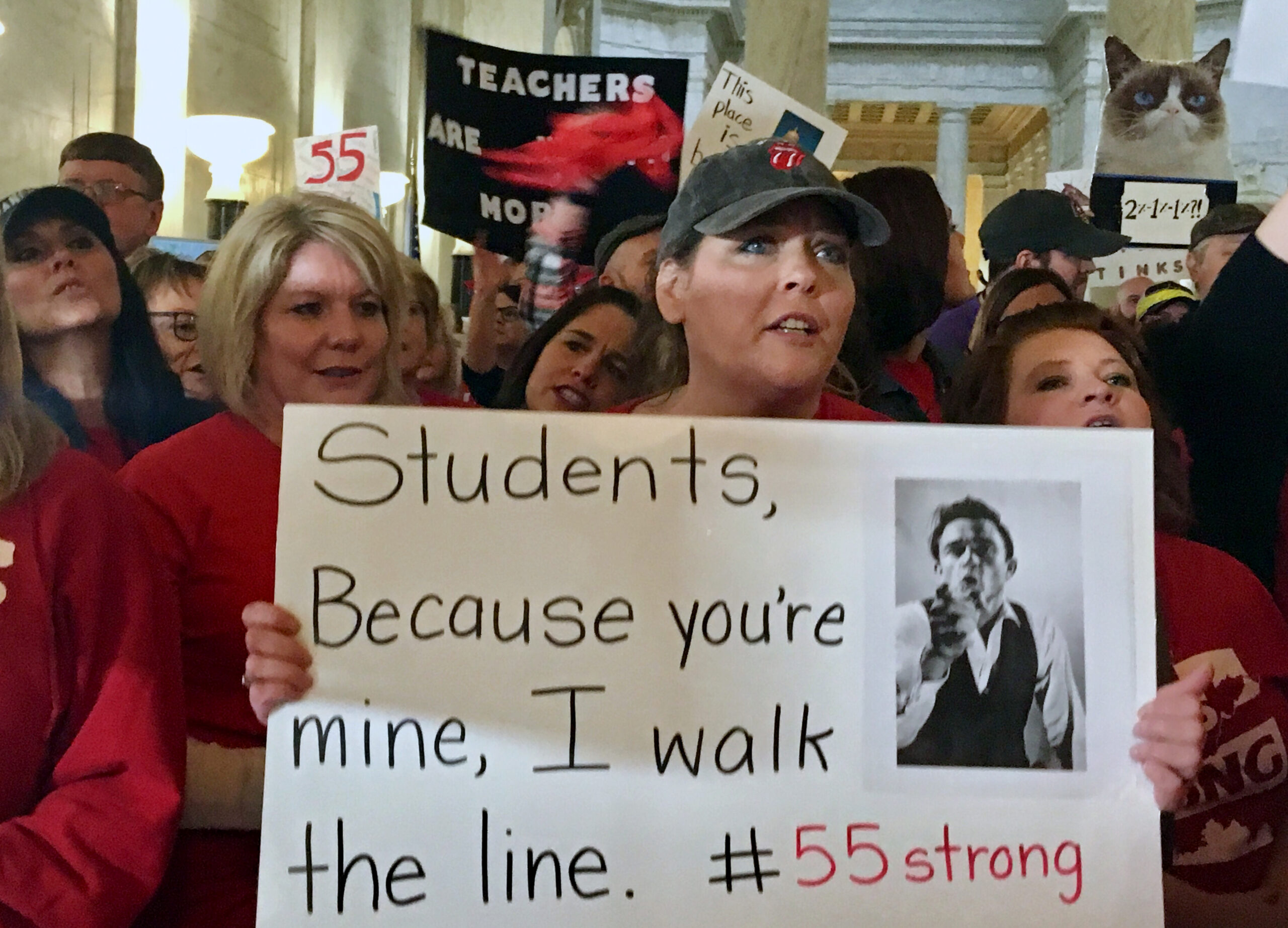Following the success of the West Virginia teachers strike earlier this year that led to a 5 percent pay raise, teachers throughout the nation are rising to demand better conditions and better pay. The latest example is Oklahoma, where teachers went on strike on April 2.
Here are five things to know about the Oklahoma teacher strike:
1. This strike goes beyond issues of pay
The Oklahoma teachers’ strike is not just about low salaries. It is a movement against a decade of failed economic policies and the defunding of public education. Oklahoma average teacher salaries are ranked 49th out of 50 states and the District of Columbia in average pay. Oklahoma teachers also have not seen a pay raise since 2008.
Critics blame bleak economic conditions in the state on reductions in state income taxes for top earners. Oklahoma also offered tax breaks to oil companies to attract their business, but these corporate tax breaks diminished state revenue from 2008 through 2014. The tax breaks ultimately led to a 24 percent reduction in per pupil funding over the same time period.
Oklahoma has cut funding to public education by US$1 billion in the last decade amid the oil industry’s economic downturn. These cuts have resulted in teachers working for low pay with outdated textbooks in overcrowded classrooms. About 20 percent of Oklahoma’s school districts have moved to a four-day week to save costs.
2. Oklahoma teachers are disappointed with their state legislature
The Oklahoma legislature passed a teacher pay raise of $6,100 on March 28, less than the $10,000 increase demanded by the Oklahoma Education Association and Oklahoma Teachers United, a Facebook group negotiating in conjunction with the state teachers’ unions for better pay. While the governor signed the bill, teachers were unsatisfied, given the state Senate’s failure to pass a bill that would fund the pay raise. The failure to actually fund the pay raise that was approved by the legislature appears to have strengthened striking teachers’ resolve.
3. Right-to-work legislation has unintended consequences
Oklahoma, like West Virginia, is a right-to-work state, meaning it is illegal to make union membership compulsory. The legislation has diminished the number of dues-paying teachers’ union members.
It has also created two consequences relevant to the Oklahoma strike.
First, in right-to-work states, teachers lack codified procedures for grieving issues like low pay. Without these measures in place, the only recourse left is to strike.
Second, the diminished power of the unions has led to the rise of grassroots organization via social media platforms. Oklahoma Teachers United has almost 14,000 followers on its Facebook page, allowing for fast communication to quickly organize rallies and walkouts. Further, the group isn’t tied to a specific union’s leadership, so it can affect negotiations without direction from union leaders.
4. Oklahoma has a critical teacher shortage
As in West Virginia, Oklahoma is suffering from a teacher shortage that has reached crisis levels – with over 500 vacancies as of August 1 and nearly 500 more positions eliminated. The state issued a record number of emergency certifications last year – about 1,200 – to plug a hole in the large number of vacancies created, when a quarter of Oklahoma teachers left for positions in other states or simply quit the profession. The shortage is acutely felt in places like Edmond Public Schools, which currently has more than two dozen positions open in its middle and high schools. The shortage is so deep that one teacher dared lawmakers to fire striking workers, arguing they would teach in Texas, which would essentially make the shortage worse. Like in West Virginia, the teacher shortage means there are no replacements for striking teachers.
5. The Oklahoma strike is likely not the last
Oklahoma is not alone in its strike efforts. Kentucky schools closed on April 2 in response to a statewide strike. Arizona teachers are poised to strike if the state legislature does not respond to their demands for pay increases. And there are rumblings of similar action in other states as well, including North Carolina. Arizona teachers rallied at their state Capitol in March in response to multiple tax cut bills that are appearing before the state legislature. The move suggests Arizona teachers will be the next to strike.
Erin McHenry-Sorber, Assistant Professor of Higher Education, West Virginia University

